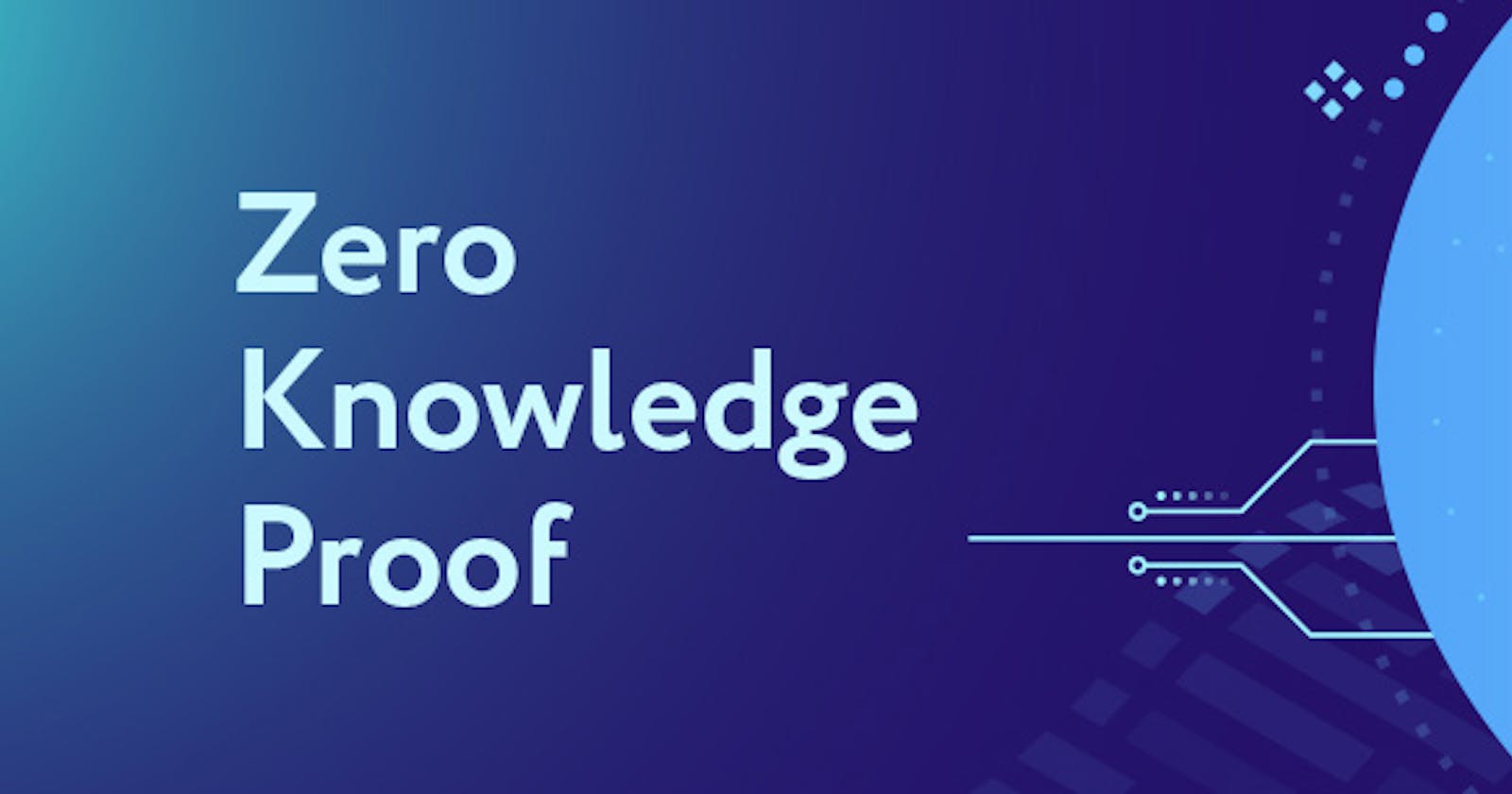An Introduction to Zero-Knowledge Proofs and Their Impact in Blockchain
What exactly is ZKP, Zero Knowledge proof
Hello Folks! Although I am not yet an expert in ZKPs, I have been learning about them and their uses, so I thought I'd share what I've discovered with you. So with that, let's get going!
Zero-knowledge proof is a technique for proving the correctness of an information without disclosing any more details about the information or the person who provided the proof.
Let us look at this!!.
Do you know what secrets are? Things that you desire to keep private. They might be anything, such as the details of the surprise birthday celebration you're throwing for your mom or the result of an examination at school.
Now Imagine that you want to convince someone that you are aware of a secret without actually revealing it to them. That seems pretty unlikely, don't you think? But what if I told you there's a way to accomplish that exact goal? This is when "Zero-Knowledge Proofs" come into play.
What exactly is ZKP?
So, what is a Zero-Knowledge Proof? It's a way for you to prove that you know something without actually revealing what you know. This might sound a bit confusing, but it's actually pretty cool!
Remember that blockchain is a digital ledger that keeps track of all the transactions that take place on it. Just like a real ledger, the blockchain is public, which means that everyone can see all the transactions that take place on it. But Zero-Knowledge Proofs uses something called "cryptography". Cryptography is a way to protect information so that only the people who are supposed to know about it can access it.
Let's say that john wants to send money to peter but john don't want others to know how much he is sending to peter, He can use ZKP to show blockchain that he has the money he wants to send (without revealing how much he has)
Standards for zero-knowledge proofs
A zero-knowledge proof (zkp) method must satisfy the following requirements
Completeness: when the information provided by the prover is accurate, then a zkp method must allow the verifier to confirm its accuracy
A ZKP method must enable the verifier to contest the truthfulness of the prover if the information provided by the prover is untrue.
Perfection (of Zero-Knowledge): The prover’s input to the verifier does not reveal knowledge of any critical data, but only demonstrates it indirectly.
Types of Zero-knowledge proofs
There are 2 types of Zero-Knowledge proofs which are
Interactive Zero Knowledge Proofs:
Zero-knowledge proofs that involve many interactions between the prover and the verifier are referred to as interactive ZKPs. Until the verifier is persuaded, the verifier challenges the prover, who responds to these challenges.
Non-interactive zero-knowledge proofs:
In this category of ZKPs, the verifier may only confirm the proof once, at any given time. Compared to interactive ZKPs, this kind of ZKP demands higher processing power. They are also the most popular because of their user-friendly nature.
Setbacks of ZKP
Every technology has its own setbacks and I have noticed a few setbacks affecting the adoption of zkp in the ecosystem.
ZKPs can be quite challenging to comprehend and use
ZKPs are still a relatively new technology and not all systems and programs can use them
ZKPs can be expensive to use on a large scale
There are only a few learning resources out there for ZKP
Real-world uses cases for ZKP
Authentication: ZKPs can be used to authenticate users without requiring them to exchange confidential information like passwords.
Machine learning: Without disclosing any information about the ML model itself, ZKPs can help the owner of a machine learning algorithm persuade others of the model's outcomes.
Online voting: ZKPs can let voters cast anonymous ballots and check to see if their selections were counted in the final result.
Finance: ZKPs can let clients demonstrate that a secret number is within a predetermined range. An applicant for a mortgage, for instance, can demonstrate that their income falls within the acceptable range without disclosing their exact pay.
Conclusion
I think that Enterprises and institutions can take advantage of the best of both worlds by combining the inherently transparent characteristics of blockchain networks with the privacy-preserving design of zero-knowledge proofs: They can keep their internal datasets private while still utilizing them in the dependable execution environments of smart contract applications.
I find zero-knowledge proof to be quite intriguing and I will be sharing everything I find with you guys as I learn. If you have any thoughts or questions about it? If you have experience with this technology, please share your thoughts or feedback in the comment box as well. Let's all learn together.
